Spring 2022 Anti-Racism Dialogs (In-Person)
Register Download Flyer
Dialog Objectives
- Objective 1 - To understand the history and legacy of racism and white dominant culture.
- Objective 2 - To build an understanding of the impact of racism and develop a shared language of anti-racism to enact our institutional values of equity, social justice, community and inclusivity.
- Objective 3 - Process and dialogue on the impacts of racism and white dominant culture in higher education and at Mission College.
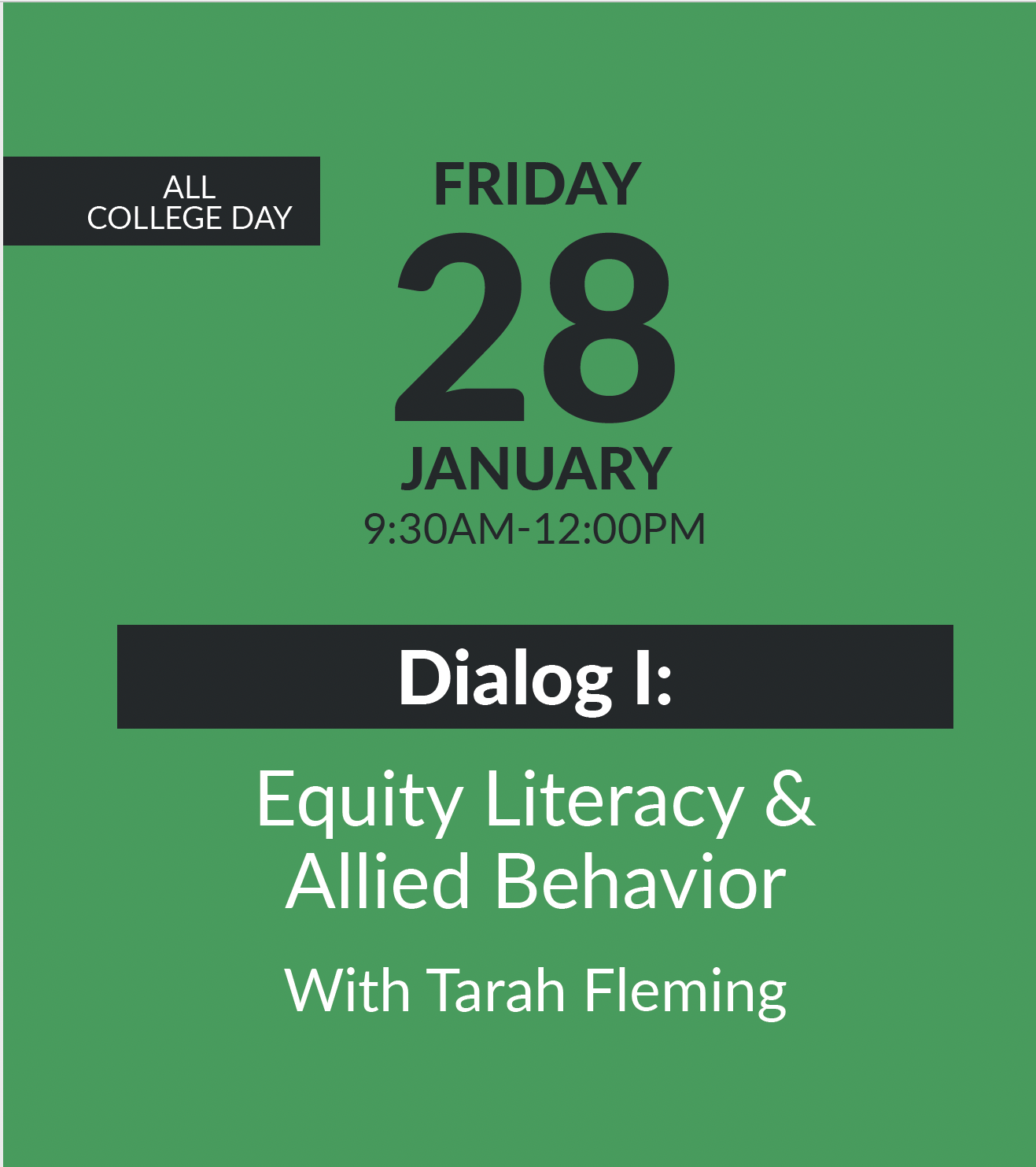
Event Description
This workshop introduces the art of dialog which guides and invites respectful and productive conversations about gender, race, class and sexual orientation to build our equity literacy.
Equity literacy refers to the knowledge and skills that enable us to recognize and redress conditions that deny some people access to opportunities based on identity.
Participants will practice identifying and responding to the subtle and not-so-subtle biases we encounter in the workplace and gain clarity on how racism lives at the ideological, interpersonal and structural level.
Through the sharing of our own stories, participants will focus on building allied behavior, understanding the nuances of intersectionality and reflecting on how the “Privilege of Oblivion” impacts us all.
Together we will practice disrupting behaviors that perpetuate racism, sexism, classism, while committing to the empathetic and consistent practices of conscious allied living in a professional setting.
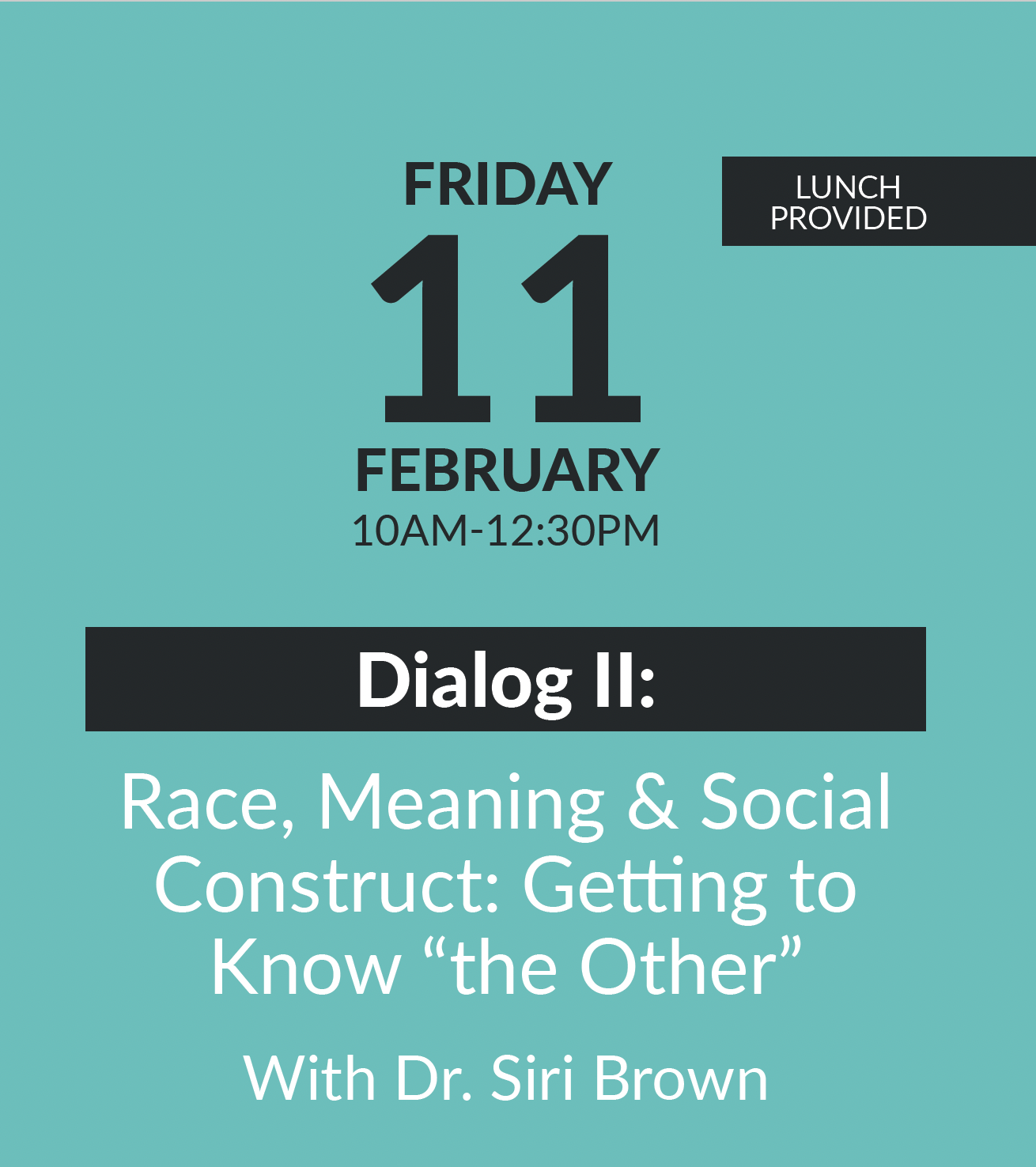
Event Description
Too often, current dialog about race matters is devoid of even basic historical understanding.
At the completion of this workshop, the participant will become more aware of the application of common terms and principles of racial justice and the way unconscious bias is rooted in historical racial constructs that are continually reified in American (US) culture.
The participant will have the opportunity to become more personally aware of their own tendencies to rely on false constructs while simultaneously hearing directly from colleagues who will break myths and thus deepen the understanding of who “the Other” is?
As educators, this deepened understanding can inform the work we do and thus aid in the desired transformative culture where equity is central to the life of the institution.
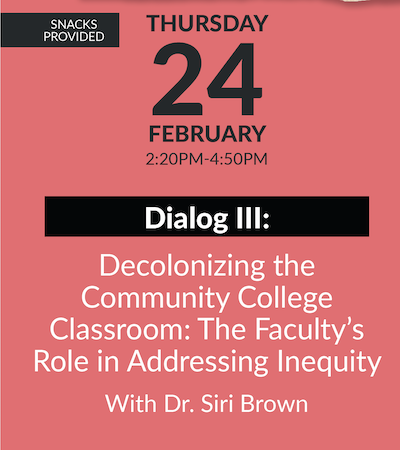
Event Description
State Chancellor Oakley’s June 2020 Call to Action asks CCCs to “audit classroom climates and create an action plan to create inclusive classrooms and anti-racism curriculum."
In doing so, he called out a critical area where inequity and racialized micro aggressions persist, yet it is an arena that many hesitate to systematically confront.
This workshop encourages faculty and to rethink the powerful impact they can have in infusing equity and anti-bias into the classroom by decolonizing the syllabus, examining individual unconscious bias, discussing equitable pedagogical practices and more.
Ultimately, faculty are provided with detailed tools and actions that can transform student spaces on campus.
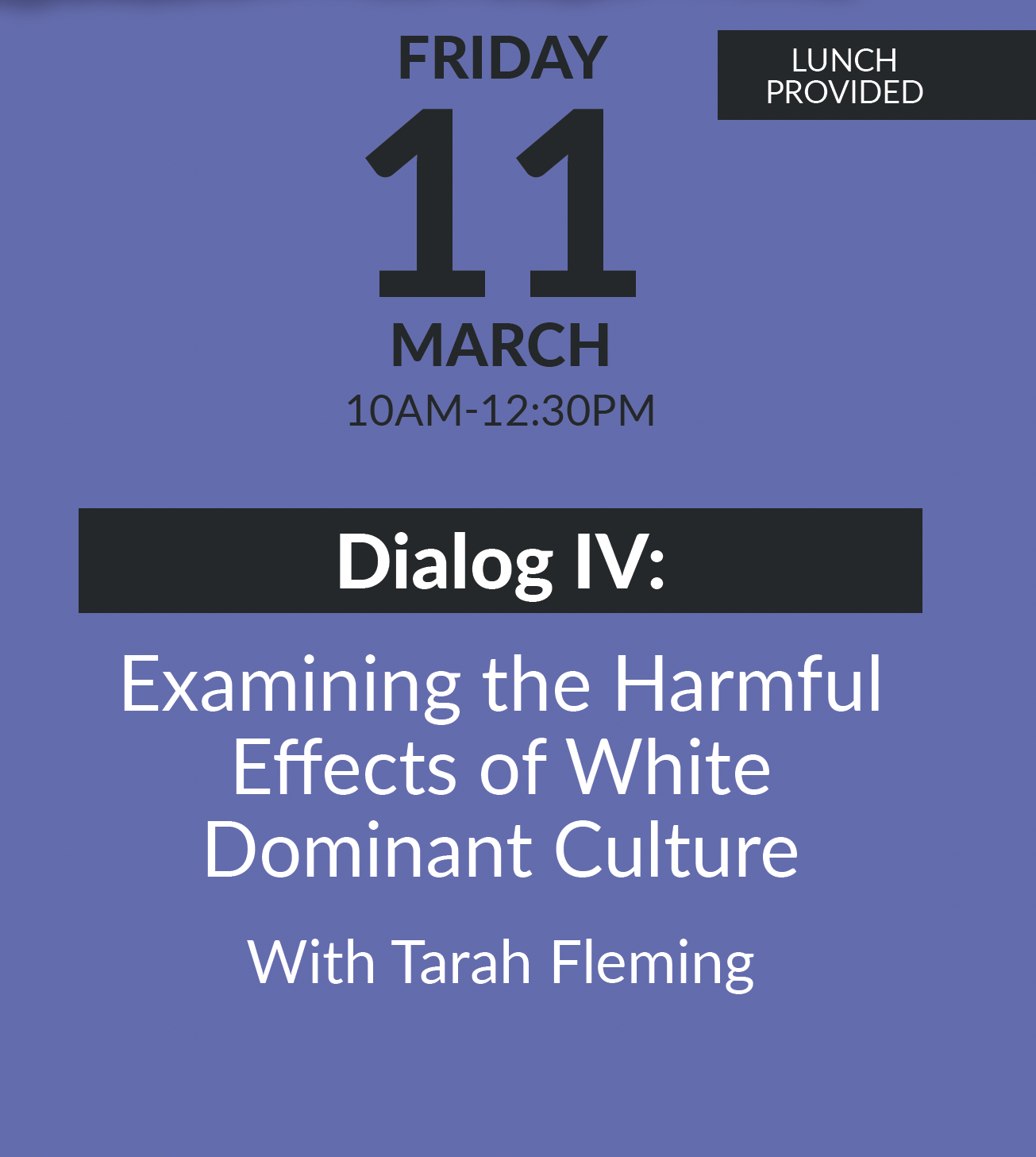
Event Description
After decades of work in multiculturalism, diversity and now equity and justice, we are coming to terms with the knowledge that white supremacy is deeply embedded into all of our behaviors, people of color included, and therefore into the design of all our institutions and social systems.
How do we get systems and policies to change if we are not actively eradicating white dominant culture (WDC) from our interactions with each other? How do we re-design systems free of inequitable and unjust practices of our past in order to decrease the high level of disparities we are all witnessing in the systems where we work?
This virtual workshop will provide a welcoming and blame free environment to gain clarity on what WDC is and is not, and how we can develop our equity lens to better identify when WDC is at play.
Using a technique called Liberatory Design we will learn how to implement mindsets for new individual behaviors, create more equitable community values and co-design innovative frameworks for the systems we work in.
Start Dialog Facilitator Bios
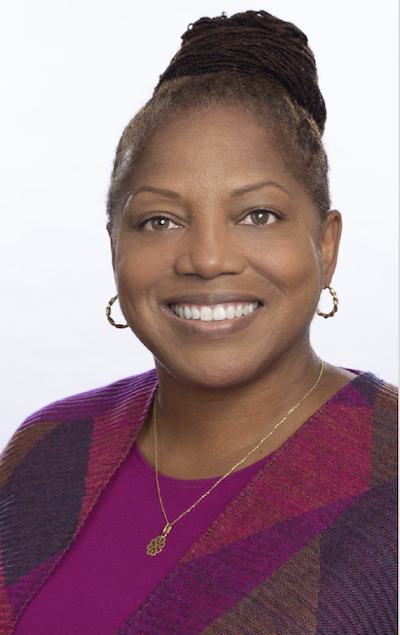 Her research centers on the racialized legal and social resistance to violence against
women. She is a 2012 Fulbright recipient of a research project on the African cultural
heritage of Salvador Bahia, Brazil where she focused on the role of African spirituality
in the history of resistance to slavery in that region.
Her research centers on the racialized legal and social resistance to violence against
women. She is a 2012 Fulbright recipient of a research project on the African cultural
heritage of Salvador Bahia, Brazil where she focused on the role of African spirituality
in the history of resistance to slavery in that region.
Dr. Brown has served as Chair of Ethnic Studies and Social Sciences for 10 years. As Chair, she and the faculty in her department led the growth of enrollments, course offerings and department expansion of full and part-time faculty.
Due to her belief in expanding student experiences she and her colleagues developed an annual study abroad program for diverse and underserved students of color at Merritt and has taken hundreds of students to Jamaica, Ghana, Cuba, and more to learn about the history and culture of the countries and globalize their understanding of the world.
To expand in-depth learning experiences, Dr. Brown and her department established the Africana Studies Center at Merritt which holds an original digital and interactive curriculum on African and African American History that is bilingual and exceeds district ADA requirements.
To expand in-depth learning experiences, Dr. Brown and her department established the Africana Studies Center at Merritt which holds an original digital and interactive curriculum on African and African American History that is bilingual and exceeds district ADA requirements.
Most importantly, Dr. Brown is the great, great granddaughter of Lula Glaspie Chatham of Carthage Texas a skilled midwife who defied racial and gender lines by traveling through the region assisting in the births and healing of both Black and white patrons.
Dr. Brown comes from a long strong family line who believe in fighting for justice and building projects and institutions that express a deep love for Black people. Dr. Brown is also a mother of two sons who are recent graduates of Hampton and Howard Universities.
 Tarah Fleming is a long-time educator, keynote speaker and lead facilitator on topics
of equity literacy, early childhood anti-bias education and the dynamics of power,
privilege and anti-racism.
Tarah Fleming is a long-time educator, keynote speaker and lead facilitator on topics
of equity literacy, early childhood anti-bias education and the dynamics of power,
privilege and anti-racism.
With over 30 years of national and international experience in education, and identifying as a San Francisco born, white, cisgender, heterosexual mother of mixed heritage teenagers, she brings a unique perspective on allied behavior and a devotion to work as a change agent in multiple solidarity movements.
Tarah was the Education Director at Our Family Coalition (OFC) working with LGBTQ families, and formerly, the Co-Director for iPride; an organization dedicated to mixed heritage and multiethnic families.
She co-founded the high school student component for the White Privilege Conference (WPC), and was the first white ally to serve on the local board for People of Color in Independent Schools (POCIS). She helped to develop, and is a certified trainer for, the nationally recognized K-5 curriculum Welcoming Schools and contributed articles to the distinguished early childhood curriculum Anti-Bias Education for Young Children and Ourselves.
She continues in her consulting and coaching practice Start Dialog providing personal and professional support for educators and activists, group dialog facilitation, and real, systemic organizational change.

